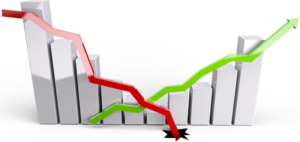Know-How
What Determines The Stock Price?
 The price of a share is determined by the current profit outlook, keep this in mind when buying shares. The market evaluates a share according to short-term and long-term criteria.
The price of a share is determined by the current profit outlook, keep this in mind when buying shares. The market evaluates a share according to short-term and long-term criteria.
Volatile trends and market impulses such as enthusiasm, fantasies, skepticism and rumors can create short-term swings up or down. For the long-term price, on the other hand, only the company profits to be expected and resulting from growth are decisive.
When is a share expensive and when is it a bargain? There is no general answer to this question. The price of a share is relative and must always be viewed in the context of the earnings forecast.
A supposedly expensive share can be a good buy if justified profit expectations point to a dynamic development. Conversely, a cheap stock may be an expensive buy if earnings potential is thin.
- Investors use microeconomic parameters to evaluate a stock price.
- To determine the appropriate price, sales, earnings, reserves, cash flow and other criteria are analyzed.
- The expected performance of the company is compared with forecasts for the respective industry.
- Companies in slow-growing or mature markets receive a different valuation than companies that operate in promising areas or are broad-based.
A stock portfolio should be viewed as a long-term investment. A permanent and hectic exchange of securities is therefore not advisable. Although the costs of stock trading have fallen drastically compared to the past, costs may still be incurred. Surcharges from brokers and the final withholding tax that is incurred when selling quickly can significantly increase the total trading costs. Short-term trading in stocks requires constant monitoring of the stock market. The risk of a loss cannot be ruled out even with careful analysis. Ultimately, the balanced composition of a portfolio can also be affected by constant buying and selling of shares. Well-valued stocks with moderate but above-average growth prospects often represent the best buy. Statistically, stocks that are expected to have high growth are usually overvalued and rarely meet investors’ inflated earnings expectations.

